Bangladesh’s constitution needs a philosophical renewal
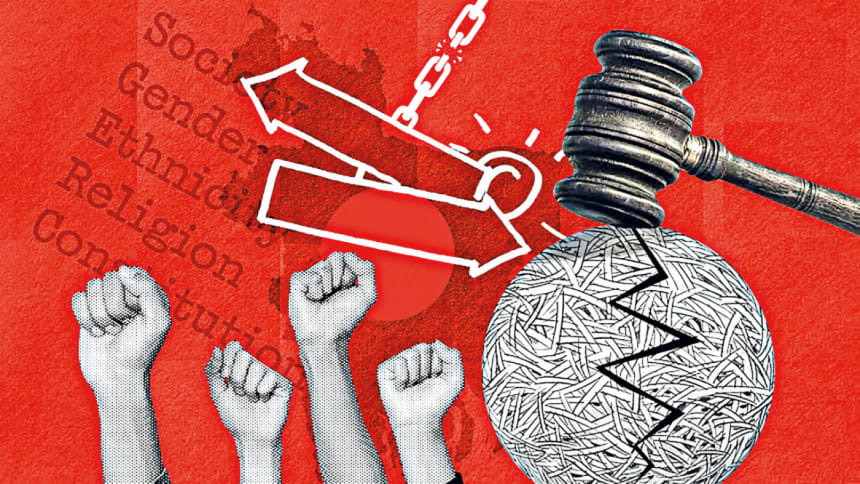
On World Philosophy Day, we celebrate philosophy's unique capacity to shape societies, influence governance, and guide nations toward justice and democracy. In Bangladesh, the question of whether to reform or rewrite our 1972 Constitution is a profound issue that cuts to the heart of our democratic identity. While this may seem like a purely legal or political matter, it is, in fact, deeply philosophical. To resolve this debate, we must turn to philosophy for the clarity and rigour required to envision a document that genuinely upholds the values that inspired Bangladesh's independence: equality, human dignity, and social justice.
The purpose of any constitution is inherently philosophical: it seeks to define the principles upon which a society is built. However, the existing constitution has enabled an authoritarian drift, which reveals how essential philosophical scrutiny is in envisioning a document that truly supports democracy. With regards to the debate about reforming versus rewriting, the former implies adjusting certain articles or adding amendments to address specific issues with the assumption that the foundation is sound but needs updates to address new or evolving needs. Rewriting, on the other hand, signifies a complete rethinking of the entire structure, suggesting that the current framework is fundamentally flawed, misaligned, or outdated. This distinction is not trivial. Philosophy teaches us to examine not only the content of a document but also the assumptions and values that underlie it. As the groundwork of our political structure, the constitution is as much about the spirit it embodies as the laws it codifies.
Many scholars and activists argue that reforming the existing document could never fully rid it of authoritarian elements that have eroded democracy over the decades. The call to rewrite the constitution is based on a belief that democracy requires an ethical and conceptual reset, a fresh philosophical grounding that speaks directly to the ideals of the Liberation War. This perspective emphasises the need to return to the roots of the 1971 Proclamation of Independence, issued on April 10, 1971, by the Provisional Government of Bangladesh in Mujibnagar, which championed values of equality, human dignity, and social justice. These ideals, present in the early proclamations, became diluted as the constitution evolved to prioritise a party's interests over people's rights.
Philosophy enables us to ask the ethical questions that underlie these political choices. Do our current constitutional principles genuinely serve the people, or do they primarily serve political interests? Are the foundational values of nationalism, socialism, democracy, and secularism truly in alignment with the people's aspirations? By examining these questions through a philosophical lens, we can more clearly see the shortcomings of the current framework and assess whether these principles remain relevant or effective.
For instance, nationalism has been invoked to suppress dissent, and socialism has often justified economic controls that restrict rather than empower. Secularism, while intended to promote inclusivity, has at times restricted free expression. Democracy itself has been compromised when its principles are selectively applied, which creates avenues for power to concentrate rather than disperse. Each of these pillars, when analysed philosophically, reveals inherent conflicts that may require more than reform to resolve. This is where philosophy's insistence on comprehensive analysis becomes essential. Rather than simply amending these principles, we need to question whether they should remain at the core of our national identity.
A constitutional rewrite informed by philosophy would involve a return to first principles, a process that goes beyond mere adjustments to envision a radically democratic document. This would require reexamining every assumption, every value, and every article with an open, critical mindset. The values articulated in the Liberation War, such as equality, human dignity, and social justice, offer a framework for a constitutional philosophy that serves the people rather than political elites.
Moreover, a rewrite guided by philosophy would ensure that the constitution is not simply a legal document but a moral one, with principles that are coherent, justified, and aligned with the democratic aspirations of the people. This effort would not only address the authoritarian drift embedded in the 1972 framework but also encourage an ongoing national dialogue around ethics and governance. A truly democratic constitution would not just passively outline rights and responsibilities; it would actively cultivate a culture of philosophical engagement, where citizens understand and debate the moral grounds of their society.
One of the criticisms often leveled at the idea of rewriting the constitution is the risk of instability. Sceptics argue that opening up such a foundational document might introduce political turbulence. However, this argument overlooks the reality that philosophy can offer stability by rooting our laws in a clear, transparent set of values. When a constitution is built on a solid philosophical foundation, it provides a steadying force for the entire nation. Rather than risking instability, a carefully crafted philosophical approach can create a framework that strengthens democracy by embodying principles that are timeless and universally respected.
World Philosophy Day is a fitting time to recognise that philosophy's role in society is more than theoretical. It is practical and essential, especially when it comes to fundamental questions of governance. Bangladesh's constitution was meant to be a reflection of the values for which its people fought, yet today, it has veered away from that purpose. By revisiting these values and grounding our laws in a renewed philosophical vision, we can reshape our constitution to serve as a true foundation for democracy.
Dr Kazi ASM Nurul Huda is associate professor of philosophy at the University of Dhaka. He can be reached at [email protected].
Views expressed in this article are the author's own.
Follow The Daily Star Opinion on Facebook for the latest opinions, commentaries and analyses by experts and professionals. To contribute your article or letter to The Daily Star Opinion, see our guidelines for submission.

 For all latest news, follow The Daily Star's Google News channel.
For all latest news, follow The Daily Star's Google News channel. 



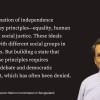
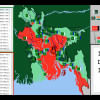

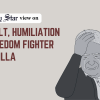


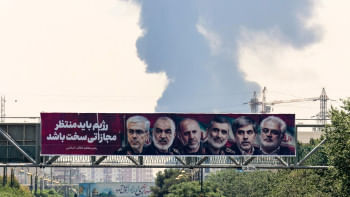
Comments